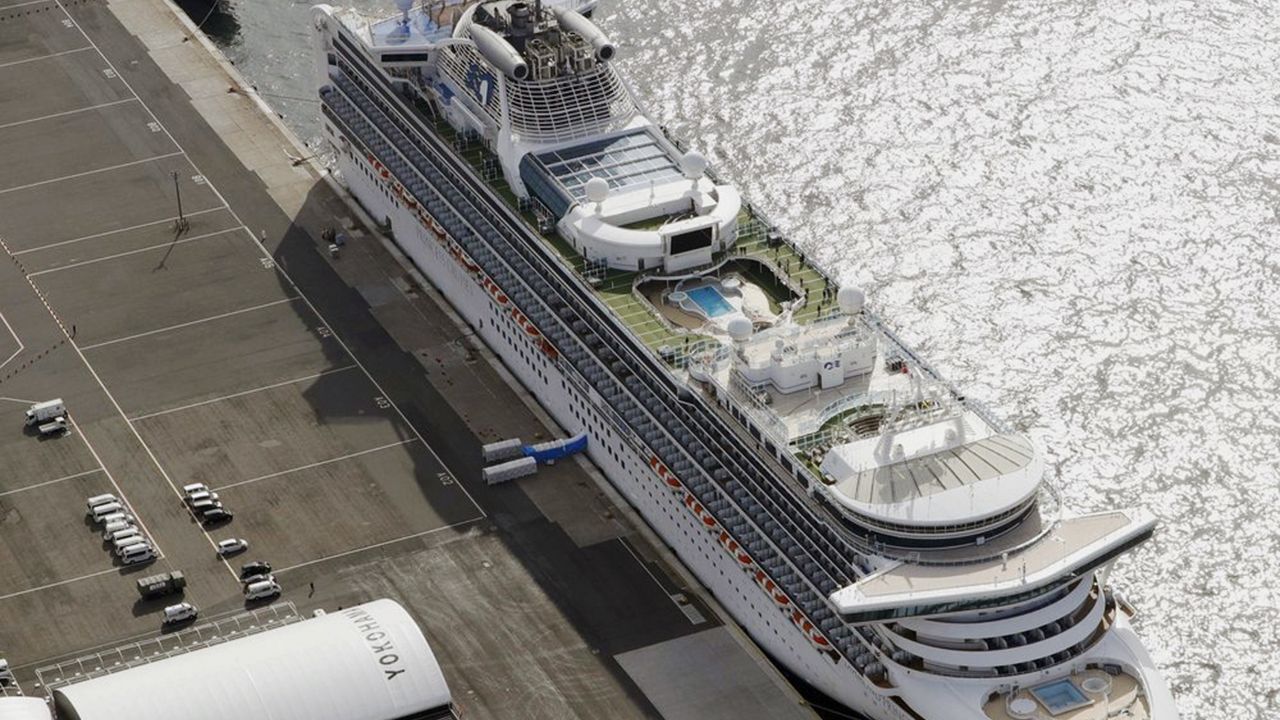INTERNATIONAL — The Wuhan coronavirus continues to spread outside of China as the number of people aboard a cruise ship off Yokohama, Japan, diagnosed with the illness rose to 61.
- Death toll in China tops more than 600
- Worldwide confirmed cases more than 31,000
- RELATED:
- China: Coronavirus Infects More than 28,000; Death Toll Climbs
- CDC Releases Screening Video
- Hong Kong Hospital Workers Strike as Coronavirus Spreads
- US Issues Travel Restrictions Due to Coronavirus
- Florida Business Could Be Key in Helping Contain Coronavirus
- Trump Administration Declares Public Health Emergency Over Coronavirus
The death toll in China is 636 and two people outside of the country have also died of the virus.
The number of confirmed cases worldwide surpasses 31,000, which includes the people onboard the Diamond Princess in Yokohama. Health officials started screening those onboard after a passenger tested positive for the virus.
The ship has about 3,700 people confined.
On Friday morning, a sign hanging from one balcony read: "medicine lacking."
An American couple is currently among those on board.
On Friday night, President Donald Trump spoke with China's president about the coronavirus outbreak. The White House stated he expressed confidence in China's ability to keep the virus at bay.
So far, in the U.S. states, there are 11 reported cases, none of them in Florida and no deaths reported.
Meanwhile, China now plans an investigation into the death of a doctor who first blew the whistle on the Coronavirus.
At first, Wuhan police reprimanded Dr. Li Wenliang because he warned the public of a potential SARS-like disease back in December.
Li's own doctors diagnosed him with having coronavirus on Saturday and days later, he died.
However, Chinese officials say the death is now considered suspicious. One of the reasons why they consider his death suspicious is that most who have died from the virus are older, while Li was 34 years old.
Li had worked at a hospital in the epicenter of the outbreak in the central city of Wuhan. He was one of eight medical professionals in Wuhan who tried to warn colleagues and others when the government did not, writing on his Twitter-like Weibo account that on December 3 he saw a test sample that indicated the presence of a coronavirus similar to SARS, which killed nearly 800 people in a 2002-2003 outbreak that the government initially tried to cover-up.
Li wrote that after he reported seven patients had contracted the virus, he was visited on January 3 by police, who forced him to sign a statement admitting to having spread falsehoods and warning him of punishment if he continued.
A copy of the statement signed by Li and posted online accused him of making "false statements" and "seriously disturbing social order."
"This is a type of illegal behavior!" the statement said.
Li wrote that he developed a cough on January 10, fever on January 11 and was hospitalized on January 12, after which he began having trouble breathing.
He also wrote that he had not in fact had his medical license revoked, a reference to the sort of extrajudicial retaliation the communist authorities mete out to rights lawyers and others seen as troublemakers.
"Please rest easy, I will most certainly actively cooperate with the treatment and seek to obtain an early discharge!" Li wrote on January 31. He posted again on Febuary 1, saying he had been confirmed as having the virus.
On Friday, the Global Times, a Communist Party newspaper and usual staunch defender of the authorities, reported that "many said the experience of the eight 'whistleblowers' was evidence of local authorities' incompetence to tackle a contagious and deadly virus."
It quoted Zeng Guang, chief epidemiologist at the Chinese Center for Disease Control and Prevention, as telling the paper's editor that "we should highly praise the eight Wuhan residents."
"They were wise before the outbreak," Zeng was quoted as saying. The paper also cited online voices saying local authorities owe Li an apology. It quoted one posting as saying, "We lost a hero."
"If his warning could send an alarm, the outbreak might not have continued to worsen," the posting said.
"Looking back, his professional sense of vigilance in particular is worthy of our respect," the paper said in an editorial.
The police action against the eight whistleblowers also garnered a rare and extremely subtle rebuke from the nation's highest court. "We have the responsibility to express to society our legal thoughts about solving the problem of rumors," a posting on the court's Weibo account said.
Meanwhile, a newborn discovered infected 36 hours after birth has become the youngest known patient. Doctors said other infected mothers have given birth to babies who tested negative, so it is not yet known if the virus can be transmitted in the womb.
For the latest information from the CDC go here.
The Associated Press contributed to this story.



